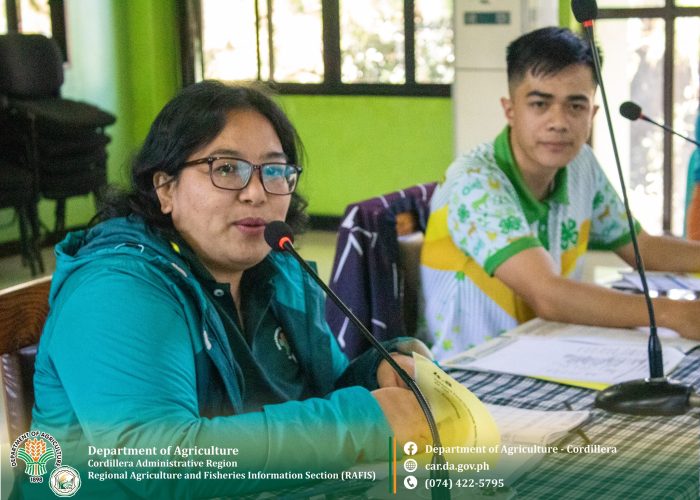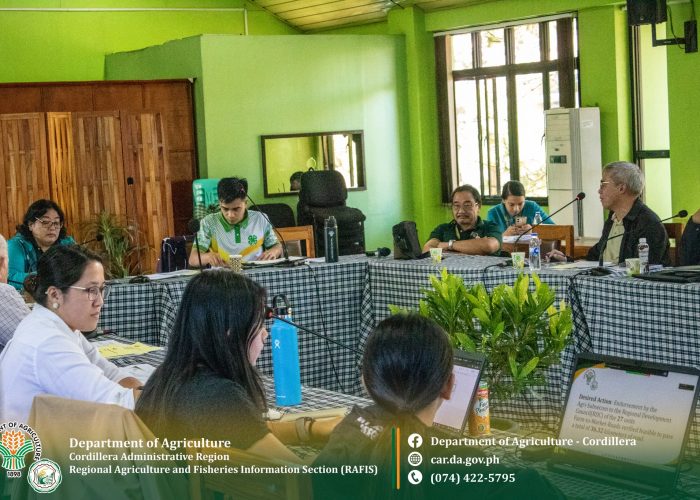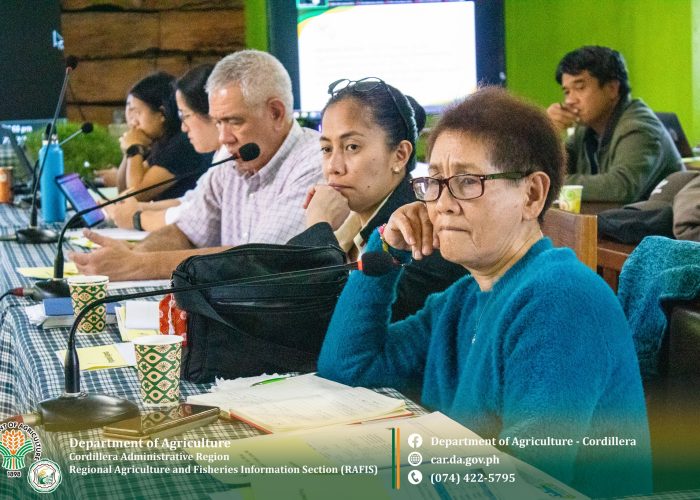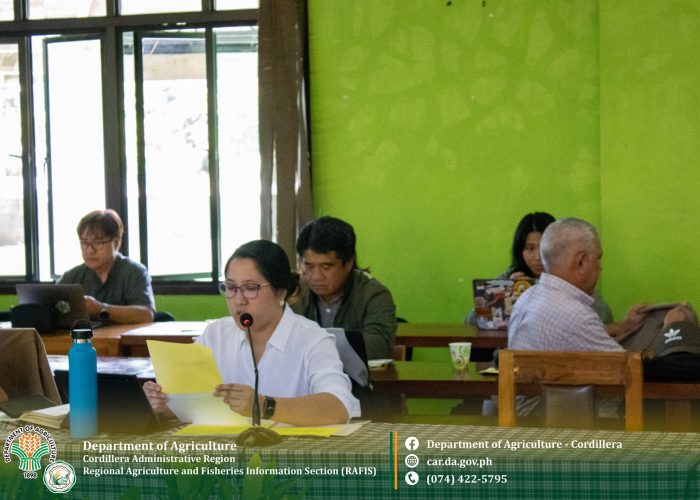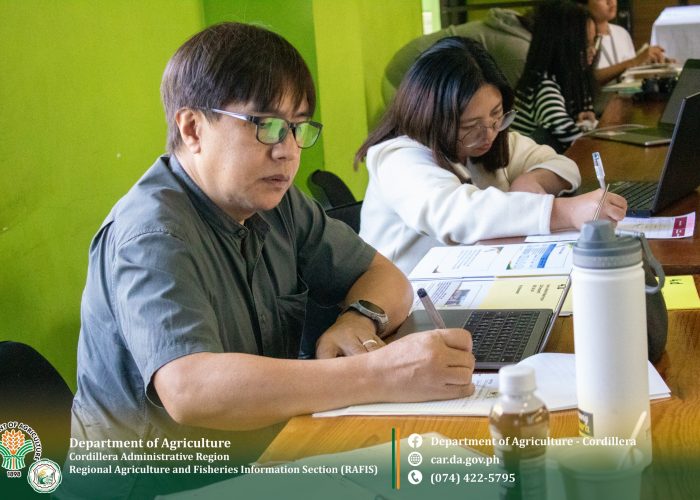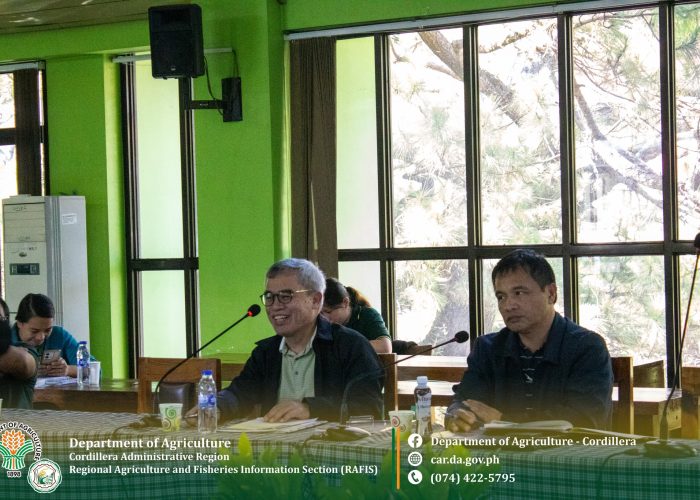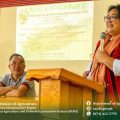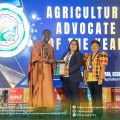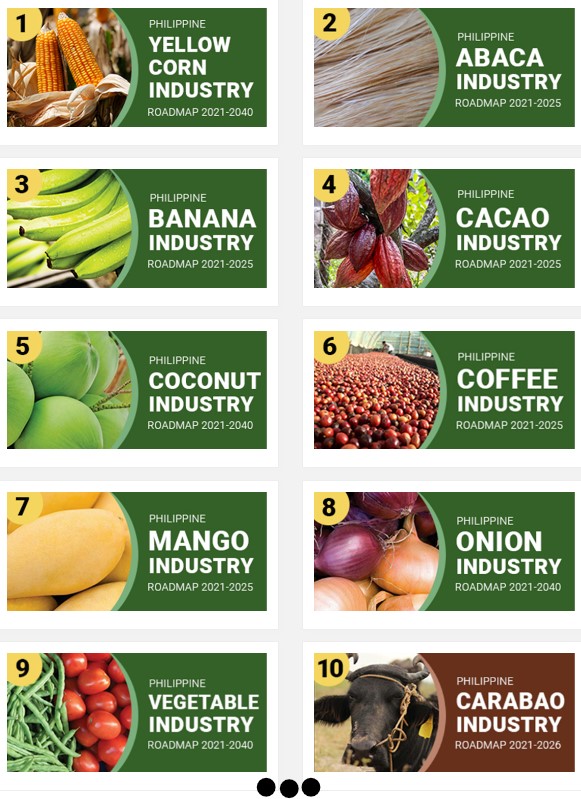The Agriculture Sub-Sectoral Committee (Sub-SeCom) has endorsed 32 agricultural infrastructures composed of 27 farm-to-market roads (FMRs) and five (5) FMR Bridges Development projects to the Economic Development Sectoral Committee (EconDev SeCom) for approval and endorsement to the Regional Development Council-Cordillera Administrative Region (RDC-CAR) during its 1st Quarter Meeting last Tuesday, February 25.
Conducted in a hybrid setting at the Department of Agriculture-Cordillera’s (DA-CAR) Conference Hall in Guisad, Baguio City and via Zoom Conference, the meeting was chaired by DA-CAR Regional Executive Director Atty. Jennilyn M. Dawayan and co-chaired by Regional Agricultural and Fishery Council Chairperson Ryan U. Palunan.
he AgriSubSecCom is a sub-sectoral committee of the Economic Development Sectoral Committee, one of the sectoral committees of the RDC-CAR.
In the meeting, DA-CAR Regional Agricultural Engineering Division (RAED) Chief Engr. Filemon Salvador presented that the 27 FMRs were validated and found to be feasible. These FMR proposals are estimated to pave a total of 36.32 kilometers directly benefitting at least 6,699 farmers and 2,495.73 hectares service area.
Of the 27 FMRs, seven (7) project proposals worth Php106.5 Million were already funded under the FY 2025 General Appropriations Act. These proposals are the Concreting of San Juan-Bacut FMR in Santa Marcela, Apayao; Concreting of Brgy. Ala-Bolog FMR in Kiangan, Ifugao; Concreting of Umalbong-Luhadan FMR in Higyon, Ifugao; Concreting of Malundon, Brgy. Bulo FMR in Tabuk City, Kalinga; Improvement of Brgy. Agawa to Brgy. Ambagiw in Besao, Mt. Province; Concreting of Lacmaan FMR in Besao, Mt. Province and Concreting of Brgy. Saliok to Brgy. Maducayan FMR Phase II in Natonin, Mt. Province. These funded agri-infrastructures with an estimated length of 7.1 kilometers are expected to benefit at least 1,042 total farmers with 664 hectares service areas when completed.
Meanwhile, the endorsed five bridges are part of the FMR Bridges Development Program covered by the Philippine-France Government-to-Government Agreement with the Bureau of Agricultural and Fisheries Engineering (BAFE) as proponent agency. Set for implementation from 2025 to 2028, the Program covers the construction of 300 FRM bridges nationwide with the main goal of improving transportation and market access in the rural areas, thus, seen to boost local economies and reduce cost of logistics.
For CAR, five proposed bridges were included in the priority list after ranking nos. 135-139 out of the 1,500 proposals nationwide. These bridges include the Amtuagan Farm Bridge in Amtuagan, Tubo, Abra; Bilis Farm Bridge in Bilis Sto. Tomas, Baguio City; Bue Farm Bridge in Bacarri, Paracelis, Mt. Province; J204 Buas Bailey Farm Bridge in Bangao, Buguias, Benguet, and Lam-ayan Farm Bridge in Bazar, Sallapadan, Abra. Securing necessary documents, especially for those within the protected areas, including the commitment of the concerned LGUs were emphasized. In terms of funding, the Program requires 20% (GOP) – 80% (French Government) counterparting scheme.
During the discussion, it was recommended that the endorsed FMR projects since Sept. 2021 be updated considering feasibility and costing changes for inclusion in the Regional Development Investment Plan (RDIP) that is being updated annually by the National Economic Development Aand uthority. This would ensure, accordingly, the regular updating of the status of endorsed projects to avoid re-submission and /or endorsement to the committee. The recommendation sought to address the concern raised that the endorsed FMR proposals are accumulating, with only some being funded each year. Engr. Jezhelie Cosme of the RAED shared that only 14% of the total endorsed projects since Sept. 2021 have been funded to date. The list of RDC-endorsed projects are being provided to the lone district representatives before and during budget proposal hearings.
Meanwhile, the RDC Secretariat presented the comments for the previously endorsed two FMRs funded by the Office of the Presidential Adviser for Peace, Reconciliation and Unity (OPAPRU). These projects, both located in Tabuk City, Kalinga, are the Improvement of New Balbalan Cemetery to Cayantis FMR and Opening/Improvement of FMR from Kalbayan, Lingayen to Bangad, Lacnog, Tabuk City. Accordingly, these projects were found to be gender-responsive based on their Harmonized Gender and Development Guidelines total score and are aligned with the strategies outlined in the CAR Regional Development Plan 2023-2028, particularly on ensuring food security, modernizing agriculture and agribusiness, and expanding and upgrading infrastructure.
Other agencies also provided updates on their accomplishments and new directives. For OPAPRU, Ms. Jessica Banganan-Assong briefed the body that all peace and development related-proposals should be contained in the Transformation Program Plan of the provincial local government units (PLGUs). Further, the prioritization and/or consideration for the PAyapa at MAsaganang PamayaNan or PAMANA projects will now depend on the assessment of the PLGU which oversees peace and development in their areas of jurisdiction. This is accordingly, in alignment also to the thrust of the National Task Force to End Local Communist Armed Conflict or NTF-ELCAC.
Ms. Karen Lising of the Department of Trade and Industry-CAR, on the other hand, provided highlights of their 2024 accomplishments on the three industry clusters namely: bamboo, cacao, and coffee. Through various interventions provided to support the clusters, it showed potential as a promising local industry. However, some challenges were noted such as limited funding for focused interventions especially for bamboo and cacao as these were not identified as among the priority commodities in the Cordilleras. Recommendations were articulated on how to further support the clusters, including the minor commodities, while ensuring that the major commodities of comparative advantage be given full support across the whole value chain.

